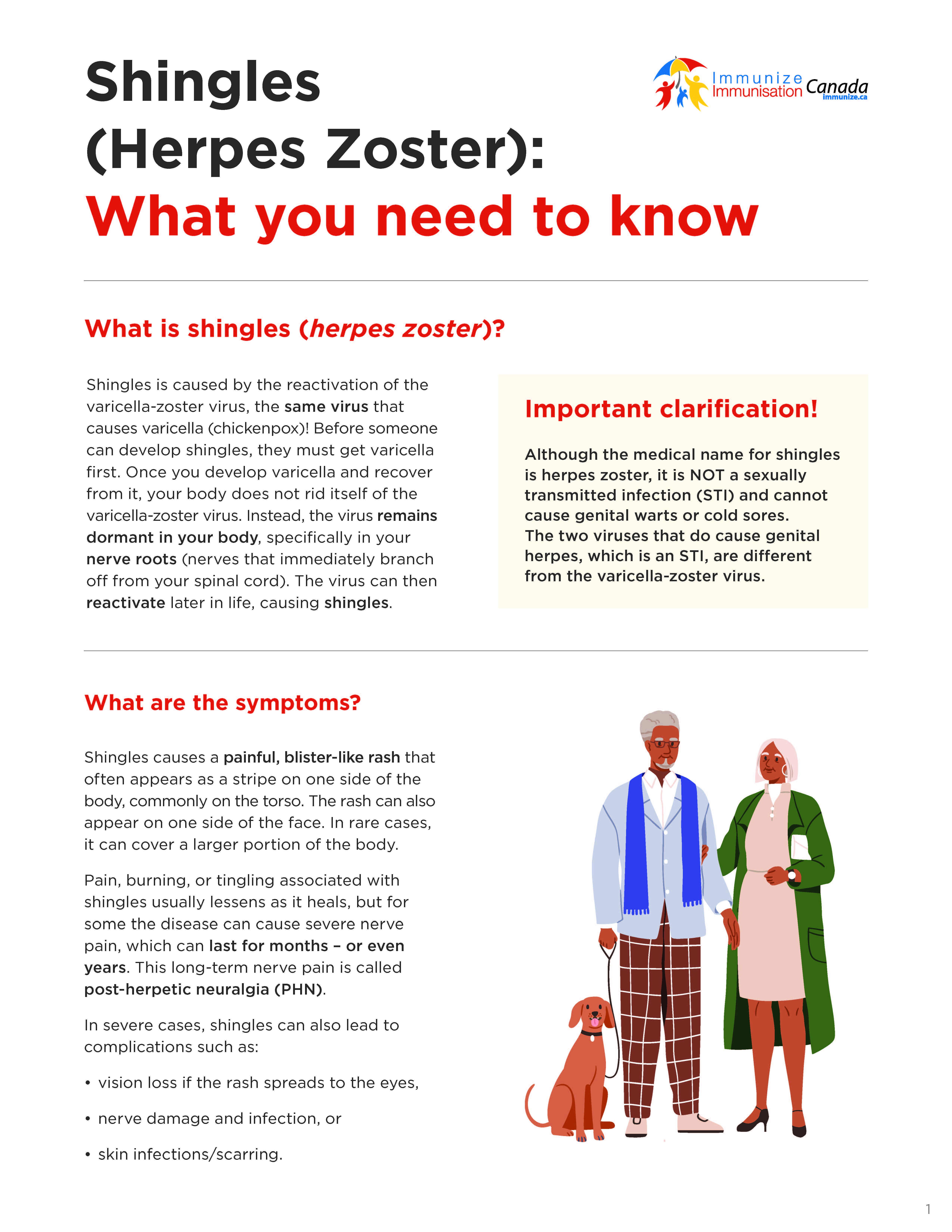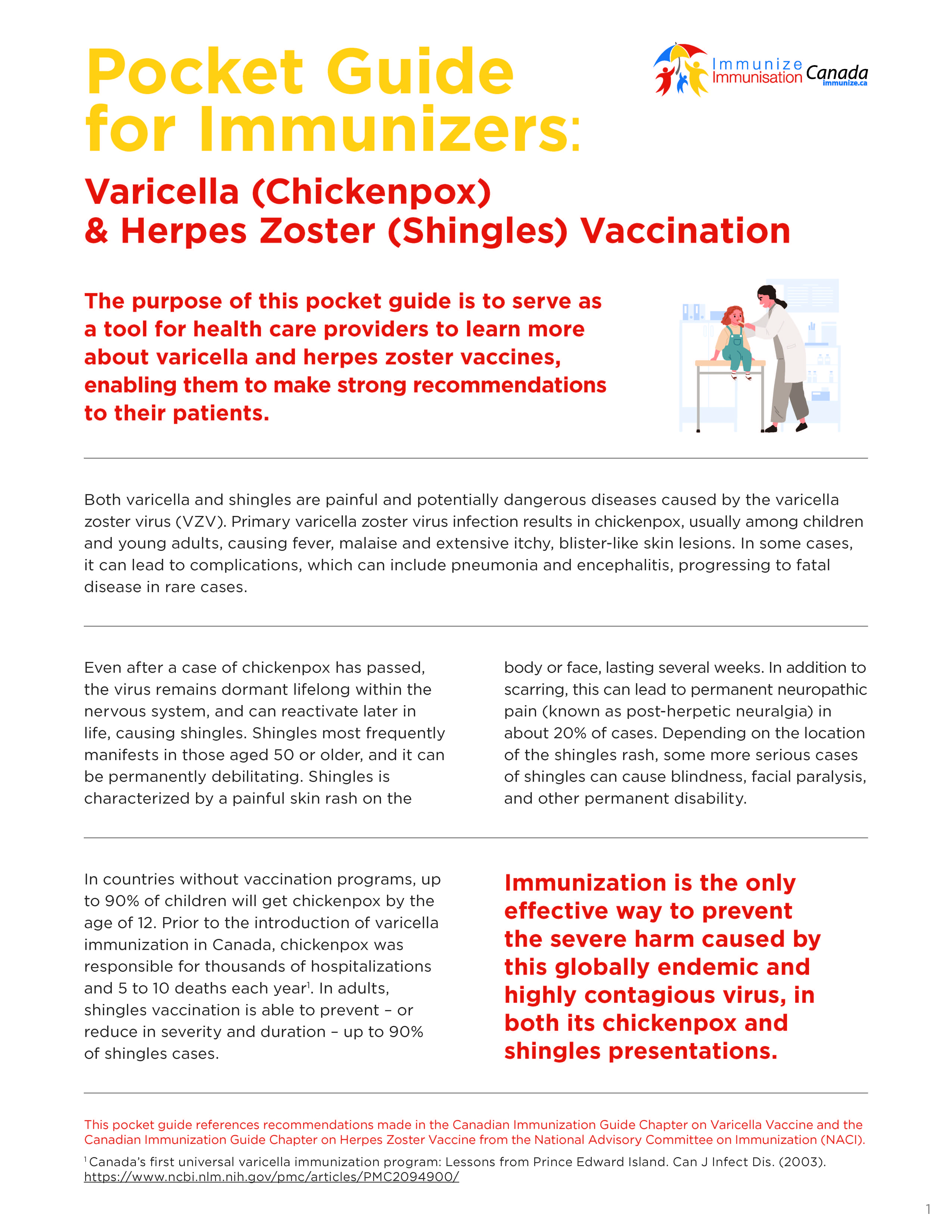Herpes zoster (shingles)
Shingles is caused by the reactivation of the varicella-zoster virus, the same virus that causes varicella (chickenpox)! Before someone can develop shingles, they must get varicella first. Once you develop varicella and recover from it, your body does not rid itself of the varicella-zoster virus. Instead, the virus remains dormant in your body, specifically in your nerve roots (nerves that immediately branch off from your spinal cord). The virus can then reactivate later in life, causing shingles.
If you have ever had varicella (chickenpox), you are at risk for developing shingles. However, shingles is most common in adults over the age of 50, with 2 out of 3 cases occurring in this age group. Shingles is also more common in persons who are immunocompromised (i.e., who have a weakened immune system).
Shingles causes a painful, blister-like rash that often appears as a stripe on one side of the body, commonly on the torso. The rash can also appear on one side of the face. In rare cases, it can cover a larger portion of the body. Pain, burning, or tingling associated with shingles usually lessens as it heals, but for some the disease can cause severe nerve pain, which can last for months – or even years. This long-term nerve pain is called post-herpetic neuralgia (PHN). In severe cases, shingles can also lead to complications such as vision loss if the rash spreads to the eyes, nerve damage and infection, or skin infections/scarring.
Check out our resources on herpes zoster (shingles) immunization and share with your network!
Campaigns and Awareness Materials

For the Public
Factsheets
Videos
Dr. Vivien Brown: Get protected against shingles
For Healthcare Professionals
Pocket Guide for Immunizers
Pocket Guide for Immunizers: Varicella (Chickenpox) & Herpes Zoster (Shingles) Vaccination
(pocket guide – PDF: 778 KB)
The purpose of this pocket guide is to serve as a tool for health care providers to learn more about varicella and herpes zoster vaccines, enabling them to make strong recommendations to their patients.
This pocket guide references recommendations made in the Canadian Immunization Guide Chapter on Varicella Vaccine and the Canadian Immunization Guide Chapter on Herpes Zoster Vaccine from the National Advisory Committee on Immunization (NACI).
Campaigns and Awareness Materials
There are no campaigns or awareness materials available at this moment



